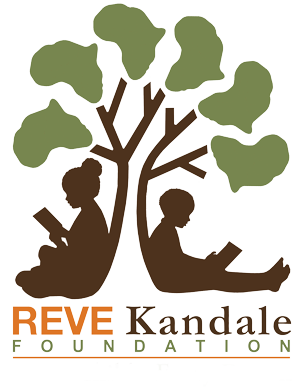Colette arrived in Kandale over three weeks ago. The drive was long, (it is always long), but the journey along the unpaved road was less challenging than in the past. Colette indicated that there was significant improvement en route, especially traversing the Kwilu River valley into Gungu.
This bodes well for future deliveries of critical construction materials. Two land rovers made the journey, a convoy of sorts. Frederic was among the passengers as well as Joseph Mange, the individual who would be leading a two week training course for teachers, and Exaucé, the assistant engineer who would be installing a freezer…yes, a freezer. Change is definitely taking place.
Without wasting a moment Frederic, Olivier, and the whole crew returned to finishing the walls on the second block of classes. At this point the walls are tall enough to receive the framework for the roof.
Simultaneously they have begun digging the trenches and laying the foundation for the third block of classes. They will start building the walls in the next few days.
Colette has enlisted a group of youth as unofficial apprentices. This has greatly increased the progress being made. In order to manufacture more red clay bricks, the local chiefs have been tasked with motivating their respective communities to bring more red clay.
Shortly after arriving Joseph Mange started the new teacher training program. It was a full capacity group and everyone was very excited to participate. Joseph began the presentation by engaging the attendees with the question, ‘If a child can’t read, whose fault is it?” This question identifies the network involved in the education of children: the parents, the teachers, the children, the community and even the political will to ensure that education is a priority
Success for the youth of Kandale begins at a very early age and REVE Kandale’s Ami du Livre initiative is setting the stage for this success. The Congolese government has provided many excellent documents to facilitate the process of teaching reading at the elementary school level. Two of the key documents are “The Guide for the Teacher” and an exercise book for the students”. The Teacher’s Guide provides very specific guidelines for teachers to teach reading to first and second grade students. The Student Guide provides many exercises for children to follow and develop their reading proficiency.
The intention is for children to learn to read a paragraph fluently in their regional language by the time they complete second grade. These documents are available in other regional languages such as Lingala, Swahili and Chiluba, but unfortunately there are presently no books available in Kikongo. Kikongo is the regional language of the Kwilu Province and Congo-Central Province, Between the two provinces, there are many variations of Kikongo, thereby making it challenging to create a single text that embraces all the different varieties. If funding becomes available, it is the hope of the teachers in Kandale that these documents will be translated into the regional form of Kikongo and made accessible for the teachers in Kandale and the greater Kwilu Province.
During the first week Joseph sought out those individuals who were capable of becoming Master Teachers. Of the seven teachers identified, four were women. In the week ahead these Master Teachers will take on the responsibility of teaching the remaining teachers using the techniques developed during the Master Teacher Training. Part of the process will include the writing of ‘local’ stories in Kikongo, that young students can relate to, a ‘Book Bank’ of a sort.
Like the ever-present motorcycles and solar chargers, change comes once again to Kandale. Now there is a freezer, actually two freezers, that are powered by solar panels. For most of the community ice is a completely new concept. People are fascinated. Merveille has been quick to utilize this technology and she has begun to store shipments of fish from Gungu and sell them to the community.
Fresh vegetables, a tangy local fruit called fita-fita, and Tumba preparing beignets.
Prior to this invention, fish was available either as dried fish or via the occasional opening of a local fishpond. With the arrival of this new appliance there has been a great deal of speculation over how to take advantage of its potential. One of the suggestions has been to freeze vegetables, such as cassava leaves and ngai ngai that are abundant during the rainy season, but unavailable during the dry season. Presently, there are no trays for ice cubes so the gin and tonics will have to wait.
Meeting with the soccer team representatives to discuss the upcoming sport camp and referee training
With the girls soccer match only a few weeks away, the enthusiasm has been building. The teacher training will have finished and the ABCD training will commence. The Communiqué will continue to document the advances in the classroom construction that are moving very quickly.



